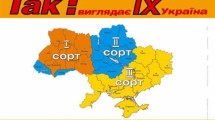Abstract
Within the context of a discussion of Robert K. Merton’s ideas on leadership in postwar America, the article examines the nature and impact of Merton’s “sociological parables.” This term refers to short tales from social life from which sociological lessons with moral implications can be drawn. These parables, such as the bank insolvency story told in “The Self-Fulfilling Prophecy,” illustrate the manner in which Merton merged moral and sociological messages in his writings. Suggestions are made along the lines that these parables, or at least the moral messages they contain, contributed to Merton’s postwar fame.
Similar content being viewed by others
References
Bernard, Chester I. [1938] 1968.The Functions of the Executive. Cambridge, MA: Harvard University Press.
Clark, Jon, Celia Modgil and Sohan Modgil, eds. 1990.Consensus and Controversy: Robert K. Merton. London: Falmer Press.
Collins, Randall. [1977] 1981. “Merton’s Functionalism.” Pp. 297–303 inSociology Since Midcentury. New York: Academic Press.
Crothers, Charles. 1987.Robert K. Merton. Chichester: Ellis Horwood Limited.
Herzog, Herta and Rowena Wyant. 1941. “Voting Via The Senate Mailbag.”Public Opinion Quarterly 5:358–82; 590–624.
Homans, George. 1946. “The Small Warship.”American Sociological Review 11:294–300.
———. 1950.The Human Group. New York: Harcourt, Brace.
Jaworski, Gary Dean. 1990. “Robert K. Merton’s Extension of Simmel’s “Ubersehbar.”Sociological Theory 8:99–105.
Lovejoy, Arthur. [1936] 1964.The Great Chain of Being. Cambridge, MA: Harvard University Press.
Merton, Robert K. 1957.Social Theory and Social Structure. Second Edition. New York: Free Press.
———. 1963. “Introduction.” Pp. xiii-xxv inDear FDR: A Study of Political Letter-Writing by Leila Sussmann. Totowa, N.J.: The Bedminster Press.
——— and Paul K. Hatt. 1949. “Election Polling Forecasts and Public Images of Social Science.”Public Opinion Quarterly 13:185–222.
Mommsen, Wolfgang J. 1989.The Political and Social Theory of Max Weber. Chicago: University of Chicago Press.
Morton, Marion J. 1972.The Terrors of Ideological Politics: Liberal Historians in a Conservative Mood. Cleveland: Case Western Reserve University Press.
Noble, David W. 1989. “The Reconstruction of Progress: Charles Beard, Richard Hofstadter, and Postwar Historical Thought.” Pp. 61–75 in Lary May, ed.Recasting America: Culture and Politics in the Age of Cold War. Chicaog: University of Chicago Press.
Ross, Edward Alsworth. 1945. “The Post-War Intellectual Climate.”American Sociological Review 10:648–50.
Sayre, Jeanette. 1939. “Progress in Radio Fan-Mail Analysis.”Public Opinion Quarterly 3:272–78.
Stinchcombe, Arthur. 1975. “Merton’s Theory of Social Structure.” Pp. 11–34 in Lewis A. Coser, ed.The Idea of Social Structure: Papers in Honor of Robert K. Merton. New York: Harcourt Brace Jovanovich.
Stouffer, Samuel A. [1955] 1967.Communism, Conformity, and Civil Liberties. New York: John Wiley.
Sussman, Leila A. 1956. “FDR and the White House Mail.”Public Opinion Quarterly 20:5–16.
Sztompka, Piotr. 1986.Robert K. Merton: An Intellectual Profile. New York: St. Martin’s.
Weber, Max. 1978.Weber: Selections in Translation. Edited by W.G. Runicman. Translated by Eric Matthews Cambridge: Cambridge University Press.
Westie, Frank R. 1973. “Academic Expectations for Professional Immortality: A Study of Legitimation.”The American Sociologist 8:19–32.
Author information
Authors and Affiliations
Additional information
His most recent publications are “Simmel’s Contribution to Parsons’ Action Theory and Its Fate,” in Michael Kaern, ed.Georg Simmel and Contempory Sociology (Kluwer, 1990); and “Robert K. Merton’s Extension of Simmel’sUbersehbar” inSociological Theory, Spring 1990.
Rights and permissions
About this article
Cite this article
Jaworski, G.D. Robert K. Merton as postwar prophet. Am Soc 21, 209–216 (1990). https://doi.org/10.1007/BF02692422
Issue Date:
DOI: https://doi.org/10.1007/BF02692422




